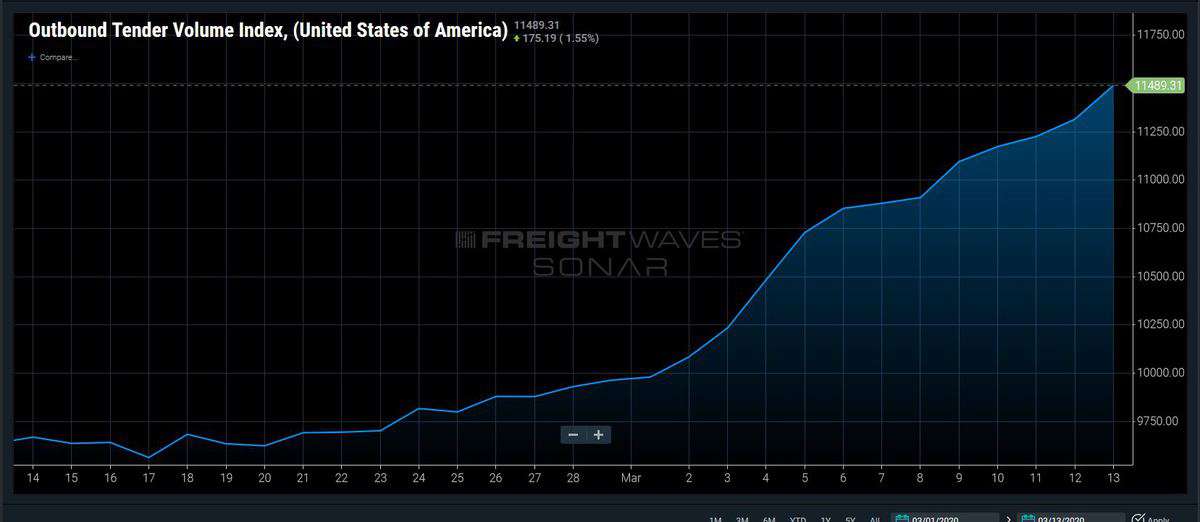In what it says is a first, the Federal Motor Carrier Safety Administration has issued a 50-state waiver to the Hours of Service Rule for commercial vehicle drivers transporting goods related to the COVID-19 outbreak.
The order was issued late Friday evening and had been foretold earlier in the day, on the back of numerous state waivers for intrastate transportation. It will last until the end of the day on April 12 or until the end of the emergency declared Friday by President Trump, whichever is sooner.
FMCSA’s order is sweeping. And while there are numerous freight movements that wouldn’t fall under it, there are plenty that will.
Possibly the most important waiver that will affect truckload carriers will be the one that impacts equipment and supplies of food for the emergency restocking of stores. State trucking association authorities contacted by FreightWaves on Friday all commented that the strain on the trucking system created by the enormous need to restock stores stripped bare by shoppers laying in vast quantities of supplies was enormous. A widely distributed picture posted on Instagram on Monday showed an enormous line of trucks outside a Pennsylvania Procter & Gamble plant that makes toilet paper; that situation presumably only got worse as the week went on.
The order specifies the waiver applies to equipment and supplies of food for the “emergency restocking of stores.”
The surge in demand for trucking can best be seen in the rise in SONAR’S Outbound Tender Volume Index, which has rocketed over the past few weeks even as economic activity in the U.S. slows due to the COVID-19 scare.

Other exemptions to HOS will cover the following, according to FMCSA:
–Supplies and equipment, including masks, gloves, hand sanitizer, soap and disinfectants, necessary for healthcare worker, patient and community safety, sanitation, and prevention of COVID-19 spread in communities.
–Three types of “persons”: those “necessary for establishment and management of temporary housing and quarantine facilities related to COVID-19”; those “designated by Federal, State or local authorities for transport for medical, isolation or quarantine purposes”; and “personnel to provide medical or other emergency services.”
Although there is no limit on the hours of service driving the truck, the FMCSA order does say that when a driver has completed a delivery, he or she must receive 10 hours of off duty if delivering goods and eight hours if transporting passengers.
One other provision: if a driver has completed COVID-19 relief work, but then is returning empty to his or her base, they can do so without violating federal rules.
The exemption is aimed specifically at the Hours of Service rule that can be found in parts 390 through 399 of Title 40 of the Code of Federal Regulations.










